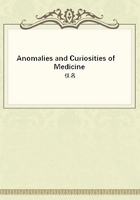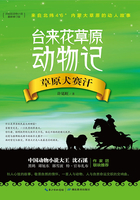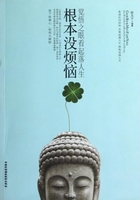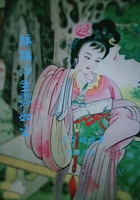Virgil, called also by his surname, Maro, from whose poem of the AEneid we have taken the story of AEneas, was one of the great poets who made the reign of the Roman emperor, Augustus, so celebrated, under the name of the Augustan age. Virgil was born in Mantua in the year 70 B.C. His great poem is ranked next to those of Homer, in the highest class of poetical composition, the Epic. Virgil is far inferior to Homer in originality and invention, but superior to him in correctness and elegance. To critics of English lineage Milton alone of modern poets seems worthy to be classed with these illustrious ancients. His poem of Paradise Lost, from which we have borrowed so many illustrations, is in many respects equal, in some superior, to either of the great works of antiquity. The following epigram of Dryden characterizes the three poets with as much truth as it is usual to find in such pointed criticism:
ON MILTON
"Three poets in three different ages born.
Greece, Italy, and England did adorn.
The first in loftiness of soul surpassed, The next in majesty, in both the last.
The force of nature could no further go;
To make a third she joined the other two."
>From Cowper's Table Talk:
"Ages elapsed ere Homer's lamp appeared, And ages ere the Mantuan swan was heard.
To carry nature lengths unknown before, To give a Milton birth, asked ages more.
Thus genius rose and set at ordered times, And shot a dayspring into distant climes, Ennobling every region that he chose;He sunk in Greece, in Italy he rose, And, tedious years of Gothic darkness past, Emerged all splendor in our isle at last.
Thus lovely halcyons dive into the main, Then show far off their shining plumes again."OVID
Often alluded to in poetry by his other name of Naso, was born in the year 43 B.C. He was educated for public life and held some offices of considerable dignity, but poetry was his delight, and he early resolved to devote himself to it. He accordingly sought the society of the contemporary poets, and was acquainted with Horace and saw Virgil, though the latter died when Ovid was yet too young and undistinguished to have formed his acquaintance.
Ovid spent an easy life at Rome in the enjoyment of a competent income. He was intimate with the family of Augustus, the emperor, and it is supposed that some serious offence given to some member of that family was the cause of an event which reversed the poet's happy circumstances and clouded all the latter portion of his life. At the age of fifty he was banished from Rome, and ordered to betake himself to Tomi, on the borders of the Black Sea. Here, among the barbarous people and in a severe climate, the poet, who had been accustomed to all the pleasures of a luxurious capital and the society of his most distinguished contemporaries, spent the last ten years of his life, worn out with grief and anxiety. His only consolation in exile was to address his wife and absent friends, and his letters were all poetical. Though these poems (The Tristia and Letters from Pontus) have no other topic than the poet's sorrows, his exquisite taste and fruitful invention have redeemed them from the charge of being tedious, and they are read with pleasure and even with sympathy.
The two great works of Ovid are his Metamorphoses and his Fasti.
They are both mythological poems, and from the former we have taken most of our stories of Grecian and Roman mythology. A late writer thus characterizes these poems:
"The rich mythology of Greece furnished Ovid, as it may still furnish the poet, the painter, and the sculptor, with materials for his art. With exquisite taste, simplicity, and pathos he has narrated the fabulous traditions of early ages, and given to them that appearance of reality which only a master-hand could impart. His pictures of nature are striking and true; he selects with care that which is appropriate; he rejects the superfluous; and when he has completed his work, it is neither defective nor redundant. The Metamorphoses are read with pleasure by youth, and are re-read in more advanced age with still greater delight. The poet ventured to predict that his poem would survive him, and be read wherever the Roman name was known."The prediction above alluded to is contained in the closing lines of the Metamorphoses, of which we give a literal translation below:
"And now I close my work, which not the ire Of Jove, nor tooth of time, nor sword, nor fire Shall bring to nought. Come when it will that day Which o'er the body, not the mind, has sway, And snatch the remnant of my life away, My better part above the stars shall soar, And my renown endure for evermore.
Where'er the Roman arms and arts shall spread, There by the people shall my book be read;And, if aught true in poet's visions be, My name and fame have immortality."















